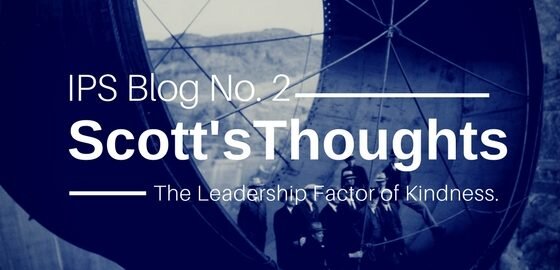I’ve noticed a trend in posts and articles on social media explaining why being kind is a sure-fire way to be taken advantage of. The subtext is that leaders are too kind when they are agreeable, or when they ignore poor performance, or are becoming too deluded and diluted with busy schedules. These texts lead one towards thinking the act of being kind is a weakness, with the outcome of kindness pre-destined to be problematic.
I do not agree with this advice. In fact, I believe this advice flies in the face of common human courtesy, a courtesy we should each remember when dealing with others. Considering the alternatives to being kind, I am unsure how the advice of reducing kindness is meaningful or helpful to an individual employee, owner, or business.
I would like to reframe this argument. Rather than telling people to remove kindness, how about we tackle tough situations with kindness? Let’s take a look!
“Being kind to the underperformer.”
There is nothing wrong with being honest, yet kind to underperformers. The anti-kind crowd will argue, “you’re damaging the morale of high performing associates if you let them stay…” I am not suggesting to ignore their performance. The statement is, “be kind.” Can we not hold associates accountable and be kind at the same time? Refusing to hold associates accountable has nothing to do with kindness or the lack thereof. But, it may have something to do with laissez-faire leadership. It is possible to wear your “kind hat,” and simultaneously provide solid coaching, feedback, and accountability.
“Being kind is a sign of weakness.”
Is this a sign that the bullies have it right? I don’t think so! Despite the growing body of knowledge on workplace bullying, there are those still encouraging methods which propagate negative acts. Bullies create psychological damage to victims and observers, and employee psychological damage creates costs for companies and families. By scrubbing kindness from the workplace are we not asking for an increase in workplace hostility, abusive leadership tactics, and employee dissatisfaction?
It is my view that perceptions of injustice have driven the dynamic of kindness as a sign of weakness. Research has shown, in two separate studies conducted in 2005 and 2006, that leaders who are empathetic promote job satisfaction and reduce turnover. When we promote leadership with a factor of being kind, we begin to form social norms. With social norms created, company associates begin to expect and demand a certain type of behavior from co-workers and vendors.
“Leaders set the course.”
Once a business or group of people adopt social norms it is hard to change the pattern. Imagine working for a company where being kind is the “Golden Rule.” Imagine the rule extended from new associates to organizational ownership. Kindness equates to many items—at the germinal level kindness demands fairness, empathy, diversity, and many other positive, employee-centric traits. Leaders set the course; they use their influential kindness to handle situations. How do we ensure employees are kind, you ask? We as leaders stay kind, even in the toughest of situations, and we hold all accountable to the social norms of kindness, compassion, and empathy.
Let’s teach employees that even in the face of making mistakes, we can react with kindness. Apologizing and learning from a mistake is important. But paramount is the act of the leader when approached with a mistake. Leaders must change reactions to statements such as, “I don’t know.” To react differently runs counter to the Golden Rule. Look, I get it, being kind requires critical thinking, and on occasion, vulnerability. I am convinced critical thinking is our way forward, and when we harness this creative, yet, seemingly uncomfortable tool of vulnerability, and the ability to accept others saying a version of, “hey I tried, I don’t know how to do this…”, our businesses will grow, we will solve more complex problems, and we can learn more from one another.
We really do get to choose whether we will be kind to others. Let’s trash the odd theories and go back to basics. Let’s make work a place enjoyable to be—let’s start with the leadership factor of kindness.

